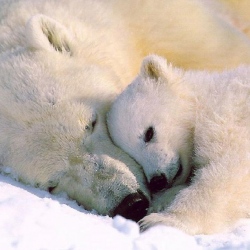
Shrinking ice sheets are not the only consequences of climate change. Research from the University of Copenhagen suggests that the tropics, for example, will be highly affected by local changes in temperature and precipitation, leading to inimitable climates.
"Whether species will be able to adapt to these novel climates is an open question. There is a risk of neglecting such vital information because the temperature increase in the polar regions is easier to grasp in comparison," senior author Miguel Araújo said in a press release. This international study is the first of its kind to assess in detail the threats and opportunities for biodiversity arising due to climate change.
"We can measure whether extreme events will become more or less extreme, whether given climatic conditions will become more or less available, and how far climatic conditions will move from their current locations," noted researcher Raquel Garcia from the CSIC National Museum of Natural Sciences in Madrid.
The team used 15 climate change models used by the International Panel for Climate Change to analyze how changes in temperature and precipitation could affect different species worldwide.
